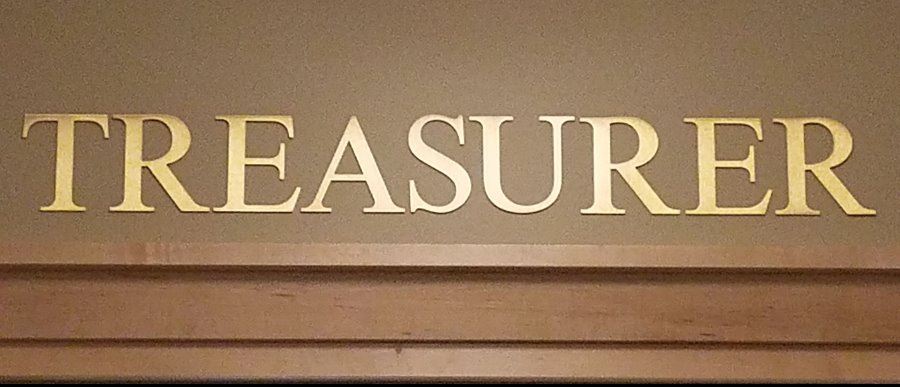Office processes have been perfected under the bourgeois dictatorship, mainly as instruments of power over the working class and other classes. To overthrow the bourgeois ruling class will require that the proletariat masters, and exceeds in mastery these common processes.
Notes on keeping a cashbook from the SACP
A basic understanding of double entry book keeping is necessary to do the job of treasurer.
Some more information on bookkeeping here
GnuCash is a good basic accounting software available for free for Windows, Mac and Linux. It has double entry accounting and many other options. It is also available for Android phones.
A basic understanding of spreadsheets is also a needed skill for the treasurer. Here is a tutorial for Libre Office Calc
If you need to work collaboratively on finances here is a web based spreadsheet
Fundraising
The function of the Treasurer is crucial to fundraising, but it is not fundraising. That is a collective responsibility.
The Treasurer provides a safe place to conserve the funds that have been raised. This is a pre-requisite for successful fundraising. Without it, the funds will disappear.
Therefore it becomes a rule that all funds raised are passed to the Treasurer, and it is the duty of all concerned to be sure that a record has been created, in the form of a receipt.
Expenditure of the funds raised must take place by decision of the collective, and must be recorded properly as such, and in all detail.
Dues
The Party requires all its members to pay dues to their branch, in any amount that is affordable for the member. It is what is otherwise called, in religious organisations, a tithe.
What happens to the dues money?
The dues money goes to the branch. The branch pay the money to the District Committee and the District Committee also has to pay to the Party centre.
No part of the dues money is likely to return to the levels below District and Branch.
This goes to reinforce the necessity of fundraising as part of any function or activity. One good example is literature. Literature for the Party has a political meaning, first. But, literature should not be an expense for the branch. It should generate a surplus.
Literature
The circulation of literature is a revolutionary priority, one that Lenin in particular wrote about.
In modern circumstances, where media of communications are changing, this function needs constant thought and re-thinking.
Literature – text – has to be sourced and/or written, and transmitted, and this movement of text needs to be reciprocated by a movement of resources in the opposite direction, so as to cover costs.
The Internet, with practically zero marginal cost of use (meaning the next use costs next to nothing), gives the impression of being altogether cost-free. But in fact, content production is fully labour-intensive. It increases only in proportion to the direct input of human labour.
The tools of the trade are not cost-free, and they have to be replaced on a 3-year cycle.
At the same time, this production can be quite localised, as well as being part of absolutely global networking. Co-operation is the key, and money collection is crucial to the cohesion of any collaboration of this kind.
Lenin on organisation of the Party
Lenin faced similar concerns to those that we are faced with today. Of course, there was no Internet. But there was a strongly-expressed relation between the local and the national, and Lenin asked, during the controversies that followed the Second Congress off the RSDLP that has split into Bolsheviks and Mensheviks, but which resulted in the loss to Lenin of his magazine Iskra.
In the attached document, (Part B from Chapter 5 of Lenin’s 1902 work, “What Is To Be Done?” Lenin puts the matter like this:
“Unless we train strong political organisations in the localities, even an excellently organised all-Russia newspaper will be of no avail. This is incontrovertible. But the whole point is that there is no other way of training strong political organisations except through the medium of an all-Russia newspaper.”
In this world, there are two poles, the local and the national. In between, there are Districts and Provinces but the crucial parts are the Branches, and the National centre. This much is as it was in Lenin’s days.
Can A Newspaper Be A Collective Organiser?, Lenin, 1902.
